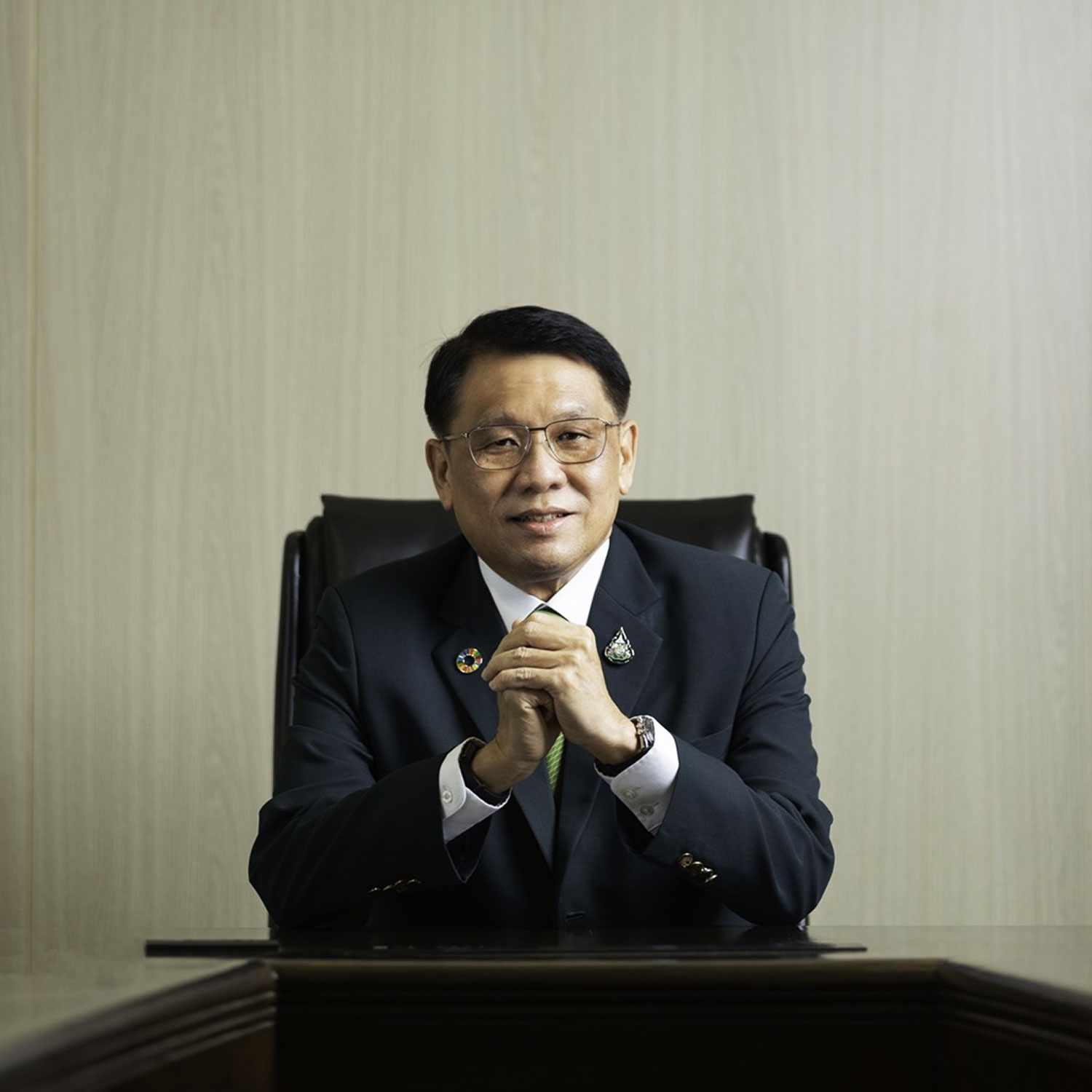
The Bank for Agriculture and Agricultural Cooperatives (BAAC) wants to develop and nurture smart farmers who use innovation to increase production and farming efficiency.
BAAC president Tanaratt Ngamvalairatt said the bank is working on details of a plan to launch a three-year soft loan scheme worth 60 billion baht for farmers to upgrade their businesses using advanced technology such as smart greenhouses. The soft loans can serve as revolving capital and carry an annual interest rate of 4%.
Recently BAAC offered similar loans to small and medium-sized enterprises (SMEs) in the farming sector, he said.
Before farmers can upgrade, they first have to determine their obstacles and adapt in order to improve their product quality, cut costs and increase production capacity, Mr Tanaratt said.
Loans alone do not create smart farmers, he said, so the bank teamed up with the Thailand Institute of Scientific and Technological Research to provide relevant knowledge to farmers and SMEs in the agricultural sector.
The BAAC also joined forces with Export-Import Bank of Thailand to help small and medium-sized farmers find export markets, said Mr Tanaratt.
TECH ASSISTANCE
The bank also organised an online meeting between farmers and researchers in October. It brainstormed with the National Electronics and Computer Technology Center (Nectec) and the National Innovation Agency to determine which research would most benefit farmers.
"This should promote greater use of research in the agricultural sector," he said.

"Smart farming systems require large investments, such as the acquisition of construction of smart greenhouses or irrigation systems, and potential investors need to consider planting high-value farm produce to make it worth their while." — Tanaratt Ngamvalairatt, President, BAAC
Most Thai farmers are used to traditional production modes and not all innovations can be easily integrated into their farming methods, said Mr Tanaratt.
He said smart farming systems require large investments, such as the acquisition or construction of smart greenhouses or irrigation systems, and potential investors need to consider planting high-value farm produce to make it worth their while.
FRUITFUL ALLIANCE
One existing smart farmer that is a bank customer is The FIGnature, a fig farm in Chon Buri. The bank joined forces with Nectec and the National Science and Technology Development Agency (NSTDA) to help the company design a smart greenhouse with light control capacity suitable for fig plantation.
The bank also teamed up with the engineering faculty of Kasetsart University, Kamphaeng Saen Campus, to invent a device to analyse monthong durian in order to accurately predict if they are mature enough for sale.
The device beams light at the durians and the reflection indicates if they are ready to for sale.
The device has 75-80% accuracy. The price for the device prototype is still high at 200,000-300,000 baht.
The device is intended to help durian farmers who depend on personal experience to decide if durians are mature enough to sell.
These farmers use a wooden rod to knock or tap on monthong durians, listening to the sound to judge their maturity.
This method is not 100% accurate and there are a limited number of farmers with the experience necessary to judge durian ripeness.
BAAC also partnered with Nectec, NSTDA, the Digital Economy Promotion Agency and Total Access Communication to pilot what it calls the Handy Sense project -- a system that can measure key parameters that are vital to plant growth.
The system uses sensors to detect temperature, soil humidity and light intensity on a real-time basis.
The project aims to help farmers reduce water usage by 5-10%, increase production capacity by 20%, reduce human labour by 20% and raise farmers' income by 20%.
The cost of the system is around 10,000 baht, excluding the cost of the greenhouse.